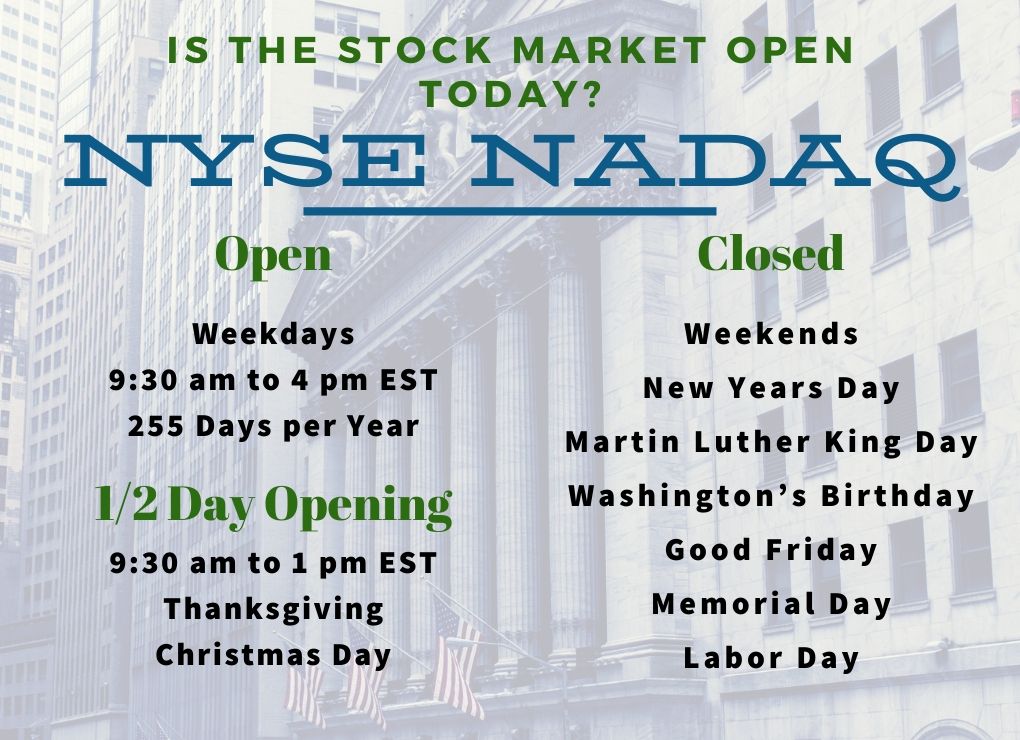Stock Market Holidays: They’re not just days off for brokers; they’re significant events impacting trading activity, market liquidity, and even investment strategies. Think of them as the stock market’s version of a long weekend – but with potentially serious implications for your portfolio. This deep dive explores everything from the origins of these holidays to their global variations and future trends, helping you navigate the market even when the exchanges are closed.
We’ll cover the various types of stock market holidays – from religious observances to national celebrations – and examine how they affect different market players, from individual investors to large institutional firms. We’ll also look at how you can adjust your trading strategies to minimize risk and potentially capitalize on opportunities around these holiday periods. Get ready to level up your market savvy!
Stock Market Holidays: A Deep Dive
Stock market holidays, those days when the buying and selling of securities comes to a standstill, are more than just days off for traders. They significantly impact market dynamics, investment strategies, and even global economic interactions. Understanding these holidays, their origins, and their effects is crucial for anyone involved in the financial world, from seasoned investors to curious students.
Definition and Significance of Stock Market Holidays
Stock market holidays refer to days when the major stock exchanges in a particular country or region are closed for trading. These closures are typically due to national or religious observances, but can also be due to other events like severe weather or significant national emergencies. The significance lies in the complete cessation of trading activity, leading to reduced market liquidity and impacting various market participants differently.
The impact on trading activity is immediate and substantial. No new orders can be executed, and existing open positions remain unchanged. This lack of trading directly affects market liquidity, making it harder to buy or sell assets quickly without significant price fluctuations. Investors might face difficulties in adjusting their portfolios, while traders may see their strategies disrupted. Brokers and other market intermediaries also experience a temporary halt to their usual operations.
For example, during the US Thanksgiving holiday, trading volume significantly drops, and price volatility can be higher in the days leading up to and following the holiday as investors adjust their positions. Similarly, major religious holidays like Christmas can lead to significantly reduced trading activity globally.
Learn about more about the process of Short Positive Thinking Quotes in the field.
| Country | Approximate Number of Stock Market Holidays | Typical Holiday Types | Notes |
|---|---|---|---|
| United States | ~10 | National, Religious (observed) | Includes New Year’s Day, Memorial Day, Independence Day, Thanksgiving, Christmas |
| United Kingdom | ~8 | National, Bank Holidays | Includes Christmas, New Year’s Day, Good Friday, Easter Monday |
| Japan | ~15 | National, Religious (Shinto and Buddhist) | Includes New Year’s Day, Coming-of-Age Day, Showa Day, several national holidays |
Types of Stock Market Holidays and Their Origins
Stock market holidays can be categorized based on their origins. Many stem from national holidays celebrating historical events or commemorating important figures. Others originate from religious observances, reflecting the cultural and religious diversity of the countries involved. Some are “observed” holidays, meaning they might fall on a weekend but are still officially recognized as market closures. The process of designating a stock market holiday often involves government bodies, regulatory authorities, and the exchanges themselves, taking into account economic and social factors.
- National Holidays: These celebrate significant national events or figures (e.g., Independence Day in the US, National Day in many countries).
- Religious Holidays: These reflect the religious calendar of a dominant faith (e.g., Christmas, Easter, Ramadan).
- Observed Holidays: These are holidays that fall on a weekend but are officially recognized by the market and observed on a weekday.
- Special Observances: These are less frequent and can be declared due to national emergencies, significant events (e.g., funerals of national leaders), or severe weather.
The historical significance of these holidays often adds to their importance. For instance, the closure of markets on Remembrance Day in the UK reflects a deep-seated national respect for fallen soldiers. Similarly, the closure on Good Friday is deeply rooted in Christian tradition across many Western countries.
Impact on Trading Strategies and Investment Decisions
Investors often adjust their trading strategies around stock market holidays. Some might choose to reduce their trading activity, anticipating increased volatility or reduced liquidity. Others might see opportunities, exploiting potential price discrepancies before or after the holiday. The days leading up to a holiday can often see increased volatility as traders and investors position themselves for the closure. Conversely, the day after a holiday might experience a surge in trading activity as participants re-enter the market.
Potential risks include being caught in unexpected price swings due to reduced liquidity. Opportunities might arise from identifying undervalued assets that are temporarily less liquid due to holiday closures. Factors investors should consider include the specific holiday, the historical volatility surrounding that holiday, their individual risk tolerance, and their overall investment goals.
- Assess historical price movements around similar holidays.
- Consider liquidity constraints and potential widening of bid-ask spreads.
- Evaluate your risk tolerance and adjust your trading volume accordingly.
- Stay informed about any geopolitical or economic news that might impact the market.
Global Variations in Stock Market Holiday Schedules
Stock market holiday calendars vary significantly across countries. The US, UK, and Japan, for example, have different holiday schedules reflecting their unique historical and cultural contexts. These variations create complexities for international traders and investors who manage global portfolios. Differences in holiday schedules can lead to situations where markets in one region are open while others are closed, potentially creating temporary arbitrage opportunities or posing challenges to effective portfolio management.
A visual representation of a global stock market holiday calendar could use a heatmap or a series of overlapping timelines. Each country would be represented by a row or column, and the dates of their respective holidays would be highlighted with a specific color. Overlapping holidays would be clearly visible, showcasing periods of global market closures. Color-coding could differentiate holiday types (national, religious, etc.).
For example, if a major event affects one market but not another, it can lead to price discrepancies that a savvy trader might exploit. Conversely, managing a global portfolio requires careful consideration of these differing schedules to ensure consistent oversight and avoid unintended exposure to increased risk during periods of closure in certain markets.
Future Trends and Potential Changes in Stock Market Holiday Schedules, Stock Market Holidays
Source: liberatedstocktrader.com
Future changes in stock market holiday schedules are likely to be influenced by evolving societal norms, globalization, and potentially, significant global events. There’s a possibility of increased harmonization or standardization across markets, particularly among major economies. However, the unique cultural and religious significance of certain holidays might limit the extent of standardization. Such changes could impact investors by creating more predictable market behavior or, conversely, by creating new complexities in managing global portfolios.
A hypothetical scenario: Imagine a future where major global markets adopt a standardized set of holidays, perhaps consolidating some religious observances into a smaller number of global “cultural holidays”. This could lead to increased predictability in market activity and reduced volatility around holidays for investors with globally diversified portfolios. However, it might also lead to the loss of cultural significance associated with specific holidays in certain regions.
Wrap-Up

Source: investorplace.com
So, next time you see a stock market holiday looming on the calendar, don’t just think of it as a day off. Think of it as a unique market dynamic that, when understood, can be leveraged to your advantage. By understanding the impact of these holidays on trading activity, liquidity, and market volatility, you can refine your investment strategies and navigate the complexities of the global financial markets with greater confidence.
Remember to stay informed, stay flexible, and happy trading!


